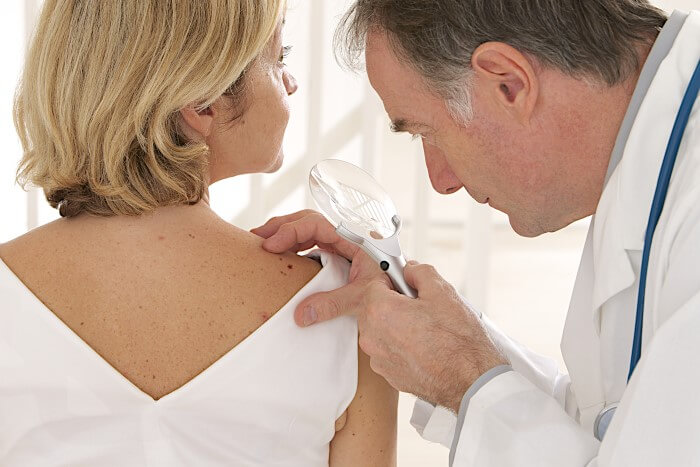At Dermatology and Skin Cancer Center in Windermere, your skin is one of our top priorities. We offer a full range of skin care services ranging from skin cancer prevention, detection and treatment to keep your skin looking its best.
Skin cancer screenings are an important part of the preventative process, as they can help diagnose issues at an early stage. Make your appointment with Dr. Jeannette Hudgens today to stay ahead of the game on skin cancer. Contact Dermatology and Skin Cancer Center today to find out more.
Skin cancer is a malignancy that results from development of abnormal cells, mainly as a result of exposure to ultraviolet radiation. Three of the most common types of skin cancer include Basal cell carcinoma, Squamous cell carcinoma and Melanoma. Basal cell carcinoma and squamous cell carcinoma are usually referred to as non-melanoma skin cancer.
According to medical experts, non-melanoma skin cancers are more common than melanoma skin cancer. Non-melanoma skin cancers typically have better prognosis and are less aggressive. Research also indicates that individuals with fair skin are at a higher risk for developing skin cancer.
Skin cancer screenings are extremely important, as they allow us to find the signs and symptoms that may indicate skin cancer. Early detection is a key part of the screening process. Finding, diagnosing and treating skin cancers in the early stages can help prevent progression into more dangerous stages.
The skin cancer screening process involves physical inspection of the skin. It can be conducted on the full body or just the exposed parts of the body such as the face, neck and arms. Any moles, growths or lesions are suspect to harboring cancer, so it’s important to point these out to your dermatologist.
Skin cancer screening is first conducted visually. Your dermatologist will check the skin for abnormalities and can examine any freckles or moles that have changed since your last visit. If anything is found that requires further analysis, a biopsy will be performed. This involves the excision of skin tissue, which is then taken to a laboratory for microscopic screening. Depending on the biopsy results, further tests or treatment options will be discussed.
In between visits to the dermatologist, we recommend conducting at-home skin checks to monitor new and changing moles or spots. Keeping an eye on your skin and any changes that are occurring can help Dr. Hudgens and our staff better diagnose and treat these issues as soon as the arise.

